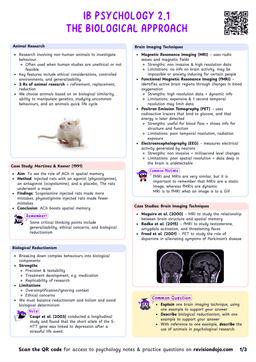Biases in Psychological Research
Bias
A systematic error that skews results in a particular direction.
- Biases in psychological research can affect the validity and reliability of findings.
- Understanding these biases helps researchers design better studies and interpret results more accurately.
Researcher Bias
- Researcher bias occurs when the expectations or beliefs of the researcher influence the study's outcome.
Example: In Rosenthal and Fode's (1963) study, researchers were told they had either "maze-bright" or "maze-dull" rats. The researchers' expectations influenced how they handled the rats, leading to differences in performance.
Imagine a referee who subconsciously favors one team, making calls that benefit them.
Participant Bias
- Participant bias arises when participants alter their behavior based on their perceptions of the study.
- Demand characteristics are cues that lead participants to guess the study's purpose and change their behavior accordingly.
- Social desirability bias occurs when participants respond in a way they believe is socially acceptable rather than truthful.
- In Milgram's obedience study, some participants may have acted differently if they guessed the true purpose of the experiment.
- This represents demand characteristics.
- In surveys about smoking or drinking, participants might underreport their habits to appear healthier.
- This represents social desirability bias.
Sampling Bias
- Sampling bias happens when the sample is not representative of the target population.
- If a study on stress only includes college students, the findings may not generalize to other age groups.
- To avoid sampling bias, researchers often use random sampling techniques.
Confirmation Bias
- Confirmation bias is the tendency to interpret data in a way that confirms pre-existing beliefs.
- A researcher who believes in the effectiveness of a new therapy might focus on positive outcomes while ignoring negative results.
- This is like only reading news articles that support your political views.
Publication Bias
- Publication bias is the tendency for scientific journals to only publish articles that are new/popular or have significant results.
- When a journal only publishes articles that have a statistically significant result for the effectiveness of a type of therapy, people may not be as aware of research that demonstrates that the treatment is not effective.
How to Spot Bias in Studies
- Look for clues: Are there any hints that the researcher or participants knew the study's purpose?
- Check the sample: Is it representative of the target population?
- Examine the data: Are there signs of selective reporting or interpretation?
- When analyzing a study, ask yourself if the results could have been influenced by bias.
- Students often confuse bias with error.
- Bias is systematic and predictable, while error is random and unpredictable.
Reflection
- How might bias have influenced the results of a study you've read recently?
- What steps could the researchers have taken to minimize bias?


